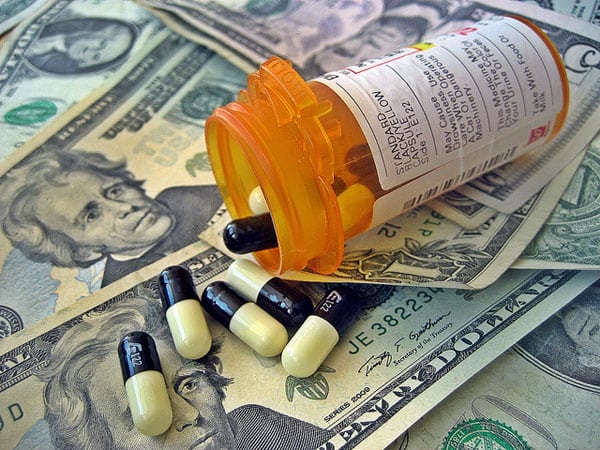
August 2, 2018; Bloomberg
“The drug industry is dishing out millions in grants and donations to organizations in cities, counties and states that have sued the companies over the deadly US opioid epidemic,” reports Jared Hopkins in Bloomberg.
Of course, the motives for this new largesse may be less than charitable. As Hopkins explains, “The efforts could help makers and distributors of prescription painkillers, who face hundreds of lawsuits by communities across the country, reduce their tax bills and build goodwill ahead of a potential multibillion-dollar settlement over their role in a crisis that kills more than 100 Americans a day.”
Hopkins elaborates,
The money is pouring into places that have been hollowed out by the epidemic. Wholesaler Cardinal Health Inc., for example, this year gave $35,500 to a nonprofit in hard-hit Clermont County, Ohio, where overdoses have soared for more than a decade. In all, the company has given at least $3 million to some 70 groups—some with ties to plaintiffs in the litigation.
Additionally, drug wholesaler McKesson Corp. seeded a standalone nonprofit dedicated to fighting the opioid-abuse crisis with $100 million, and distributor AmerisourceBergen Corp. started its own opioid-focused grant program. Amerisource said it is still processing most applications, and couldn’t provide details, but has announced a $50,000 grant to three Boise-area hospitals to launch a program to help patients who overdosed on opioids.
Hopkins adds, “The contributions mostly began after the wave of lawsuits. They are small in comparison with the amount companies could be forced to pay in a settlement—an estimate by Bloomberg Intelligence analysts pegs that potential tab at as high as $50 billion.”
“That’s the way these battles are fought these days. They’re not just fought in court,” explains Richard Ausness, a University of Kentucky law professor. “If you read these complaints it just sounds awful what they did, so they’re trying to create a different narrative.”
Andrew Kolodny, a Brandeis University researcher, recommends that potential recipients reject the funds. “I can certainly understand how desperate they are, but they’re taking blood money. An element of this is public relations and they want to make it look like they are doing something about this problem.”
Sign up for our free newsletters
Subscribe to NPQ's newsletters to have our top stories delivered directly to your inbox.
By signing up, you agree to our privacy policy and terms of use, and to receive messages from NPQ and our partners.
“Companies facing lawsuits regularly seek ways to influence public opinion,” notes Hopkins. In addition to donations, this includes heightened advertising expenditures. As Hopkins explains, “Researchers at Harvard Business School who studied 20 years of lawsuits against public companies found that targeted local advertising increased by 23 percent after lawsuits were filed, and that they increase the probability of a favorable outcome.”
For example, Oxycontin maker Purdue Pharma, owned by the descendants of Mortimer and Raymond Sackler, profited the most from the drug. But it is now running ads in major newspapers touting its initiatives to limit the use of opioids.
On the charitable side, other drug companies that have also stepped up their donations include drugmaker Endo International Plc and Johnson & Johnson. Hopkins adds that “Teva Pharmaceuticals Industries Ltd. didn’t say whether its outreach on public health has included donations related to opioids.”
“Corporations can deduct or donate up to 10 percent of their annual taxable income,” notes Hopkins. “But a company can violate self-dealing rules if giving is seen by the Internal Revenue Service as using its charity to benefit the company, including paying debts or fines,” according to Marcus Owens, an attorney who specializes in nonprofit law for Loeb & Loeb LLP.
Hopkins, citing Owens, notes that “companies may be in a gray area for two reasons: First, a fine or debt in the opioid litigation doesn’t yet exist [and] also the donations have come after they were sued and amid settlement discussions.”
“That sort of coincidence might suggest self-dealing, but in order to make that a case the IRS would have to know more about how the donations were structured,” explains Owens.
Alexandra Lahav, a University of Connecticut School of Law professor, says the contributions could be a tactic in settlement talks or discussions with regulators, and while the donations wouldn’t be applied dollar-for-dollar in a settlement agreement, they show goodwill on the part of the company.
“What they’re probably factoring in is, if I seem less like a bad guy, then the jury is more likely to award a lower amount, the judge is more likely to rule in my favor and the regulators are more likely to go softer on me.”—Steve Dubb












